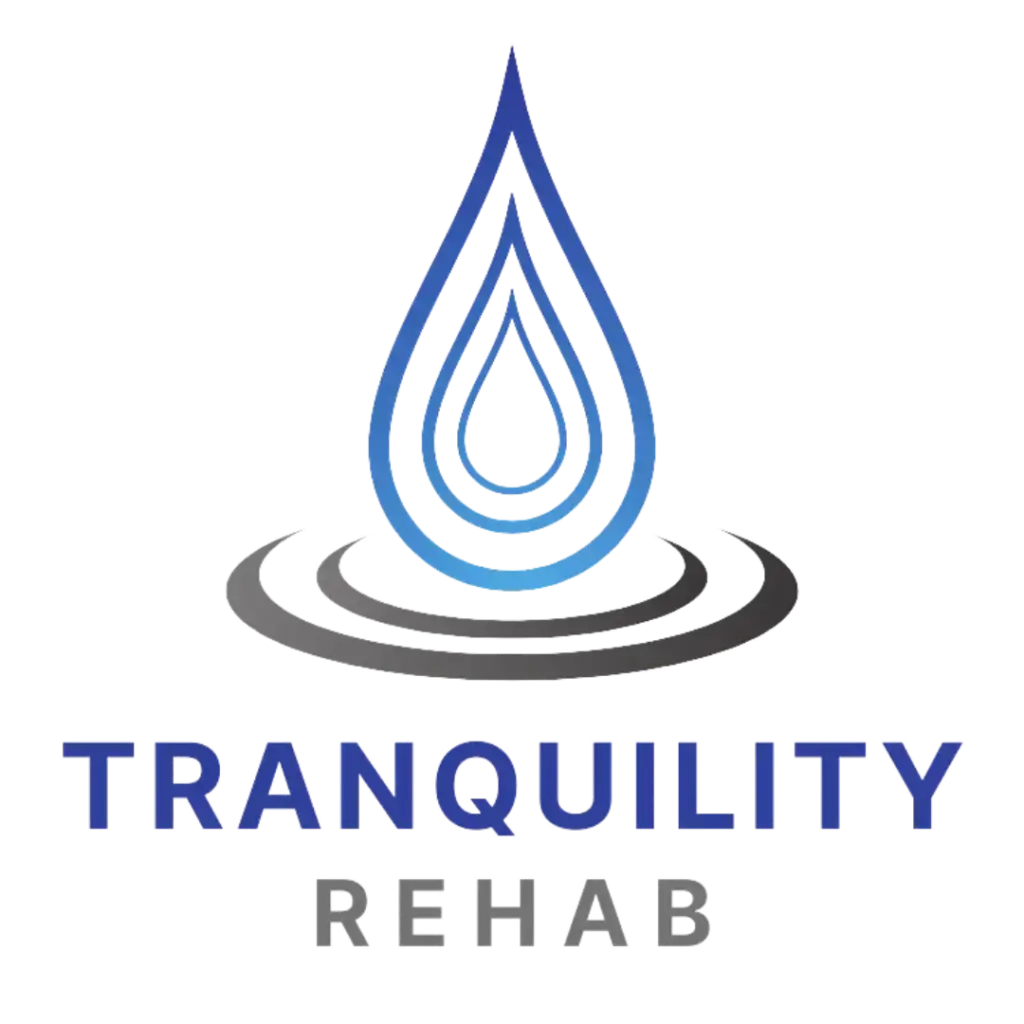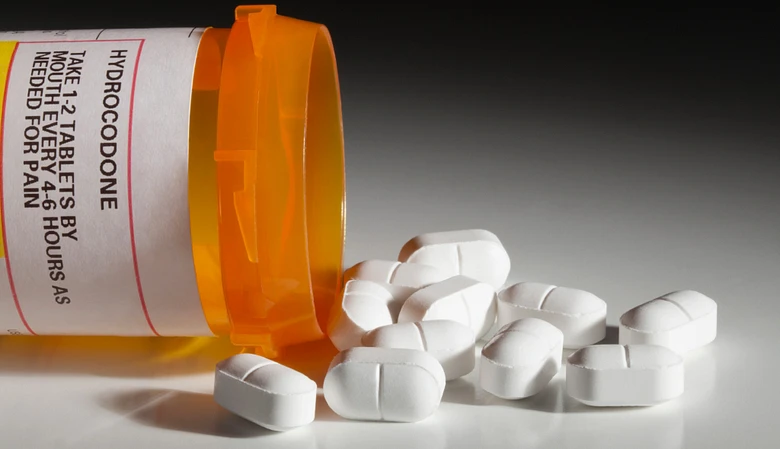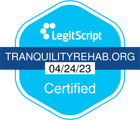At Tranquility Rehab, we recognize that the opioid crisis in California and the rest of the country affects everyone differently. That’s why the journey to recovery that we offer is personalized for each individual. Our men’s addiction treatment program provides a structured and supportive environment designed to help your loved one navigate the road to recovery and build a foundation of sobriety. With a focus on evidence-based therapies and personalized care, we are here to guide you every step of the way.
It is very easy to develop an addiction to hydrocodone or other prescription painkillers. An addiction to hydrocodone or other opioids usually starts slowly but, before you know it, abuse of hydrocodone will cause tangible symptoms and signs.
If you see any of these signs that someone you love is abusing hydrocodone or is addicted to other painkillers, Tranquility Rehab can help guide them to a path of long-term sobriety. Call us at 510.726.4947 for compassionate guidance and direction.
Recognizing Signs of Hydrocodone Use in Your Loved One
Hydrocodone, classified as a Schedule II narcotic due to its high potential for misuse and dependency, is a potent opioid painkiller commonly prescribed for managing moderate to severe pain. Its powerful nature means that it can lead to both physical and psychological addiction. While initially prescribed to alleviate pain, hydrocodone can become a source of addiction when pain subsides, leading to continued use.
If you suspect that someone you care about may be misusing hydrocodone, it’s crucial to be aware of the signs of its use. Identifying these signs early can pave the way for timely intervention and professional treatment, improving the chances of a positive outcome for the patient and a successful recovery. Let’s explore some of the key indicators that may suggest hydrocodone misuse in a friend or family member.
Behavioral Changes – Does Something Seem “Off”?
If you’re in a relationship with someone who is using hydrocodone, it’s essential to be attuned to subtle shifts in their behavior. Initially, you might observe that your loved one appears to be in exceptionally high spirits. Hydrocodone can induce feelings of euphoria, leading to an unusually cheerful demeanor. However, the effects of hydrocodone can be unpredictable, and these euphoric symptoms may suddenly give way to anxiety or distress, often triggered by trivial matters.
To gauge these changes, establish a baseline by understanding how your loved one typically behaves. If you start noticing anything that deviates from their usual demeanor, it’s worth taking a moment to assess whether this is within the realm of normal behavior or if something indeed feels amiss.
Physical Signs of Hydrocodone Abuse & Addiction
In addition to observable changes in behavior, it’s crucial to be vigilant for physical indicators when a loved one exceeds the prescribed dosage of hydrocodone. Physical manifestations of hydrocodone misuse can encompass a range of symptoms, including:
- Nausea and vomiting
- Pupil constriction
- Persistent itching
- Skin rashes
- Dizziness or lightheadedness
- Dry throat and coughing
These physical signs may also overlap with withdrawal symptoms, further complicating the situation. If you observe your loved one experiencing symptoms like insomnia, muscle aches, restlessness, cramping, or diarrhea, they may be going through withdrawal.
Withdrawal from hydrocodone can be a distressing experience. If you suspect withdrawal symptoms, consider guiding your loved one toward a treatment center promptly. Our detox and addiction treatment center at Tranquility Rehab is specifically equipped to facilitate a smoother withdrawal and detox process, offering essential tools and support to help individuals through this challenging phase.
Dramatic Lifestyle Changes
In the context of our relationships, we often settle into familiar routines. However, the introduction of hydrocodone can disrupt these established patterns. If you observe your loved one consistently neglecting work, school, and previous family commitments, this change in behavior should raise concerns. Such behavioral alterations may be linked to their use of hydrocodone.
For individuals grappling with hydrocodone addiction, their preoccupation with the drug can eclipse once-important priorities. Obtaining their next dose or achieving the next high may take precedence over responsibilities and daily activities that were previously significant. As addiction takes hold, habits and routines that once anchored their lives may begin to lose their importance.
Getting Hydrocodone Without a Prescription
Due to its classification as a Schedule II narcotic, doctors typically avoid prescribing hydrocodone for extended periods. When prescribed, healthcare providers often aim to gradually reduce the dosage to mitigate the risk of addiction. Furthermore, hydrocodone prescriptions are typically limited in frequency. For individuals who have developed an addiction to the drug, the end of a prescription can induce panic and distress.
Once a prescription expires, some individuals may resort to illicit methods to acquire the drug, which can include:
- Soliciting or taking hydrocodone prescriptions from friends and family members
- Engaging in ‘doctor shopping’ to obtain additional prescriptions from multiple healthcare providers
- Purchasing hydrocodone from street vendors
- Obtaining opiates through unverified online sources
Unfortunately, acquiring hydrocodone from the streets or unregistered sellers comes with significant risks. There is no assurance that the substance being purchased is, indeed, hydrocodone. Non-prescription drugs acquired through these channels lack the quality control and safety standards of pharmacy-dispensed medications. They may be contaminated with dangerous substances like Fentanyl or other toxic fillers, posing severe health hazards.
Mixing Hydrocodone With Other Drugs or Alcohol
It is strongly advised against combining hydrocodone with any other drugs, yet many individuals disregard this cautionary advice. They persist in co-administering hydrocodone with various other substances, a practice that can prove highly perilous. The act of blending multiple drugs has the potential to either obscure or amplify the adverse side effects of all substances involved.
As users chase more intense highs, they may escalate their hydrocodone dosage and engage in dangerous combinations with other drugs. This recklessness can yield life-threatening consequences. Beyond the immediate risks, mixing hydrocodone with other substances can also result in enduring complications that affect both physical capabilities and cognitive functions.
If you suspect that your loved one is taking hydrocodone and even combining it with alcohol or other substances, it is imperative to seek help without delay. These drugs are not meant to be used concurrently with other substances, and the cumulative complications and side effects arising from the consumption of multiple substances can inflict severe harm if not promptly addressed.
How Do You Help Someone Stop Abusing Hydrocodone?
Hydrocodone is a potent and perilous drug that can swiftly take control of an individual’s life, leading to addiction and dependency. If you suspect that someone you care about is grappling with hydrocodone abuse, guiding them towards addiction treatment is a critical step that could potentially save their life. At Tranquility Rehab, we offer a range of tailored treatment programs designed to help individuals break free from hydrocodone addiction and embark on a journey to a sober and fulfilling life.
Treatment for hydrocodone addiction can be effectively administered at Tranquility Rehab, where our dedicated staff is equipped to address the issue comprehensively. Our treatment process typically begins with opioid detoxification, a vital step in the journey to recovery. During this detoxification phase, specific medications may be employed to alleviate the intensity of withdrawal symptoms. These medications also play a pivotal role in supporting relapse prevention, a treatment approach known as Medication-Assisted Treatment (MAT).
Get Professional Help – What Tranquility Rehab Does For You
Tranquility Rehab offers more than just a luxury rehab for men in California; our evidence-based therapies and comprehensive treatment programs are designed to help men overcome addiction and achieve lasting recovery. With experienced professionals and medical doctors by their side, our participants receive the highest level of care and support. Our team is experienced in opioid addiction treatment.
If you or a loved one is seeking a supportive and evidence-based men’s addiction treatment program, Tranquility Rehab is here to help. Take the first step towards a brighter future by reaching out to us today. Together, we will navigate the road to recovery, providing you with the tools, resources, and professional support needed to achieve lasting healing and regain control of your life.
Call us at 510.726.4947 if you or someone you love is struggling.








